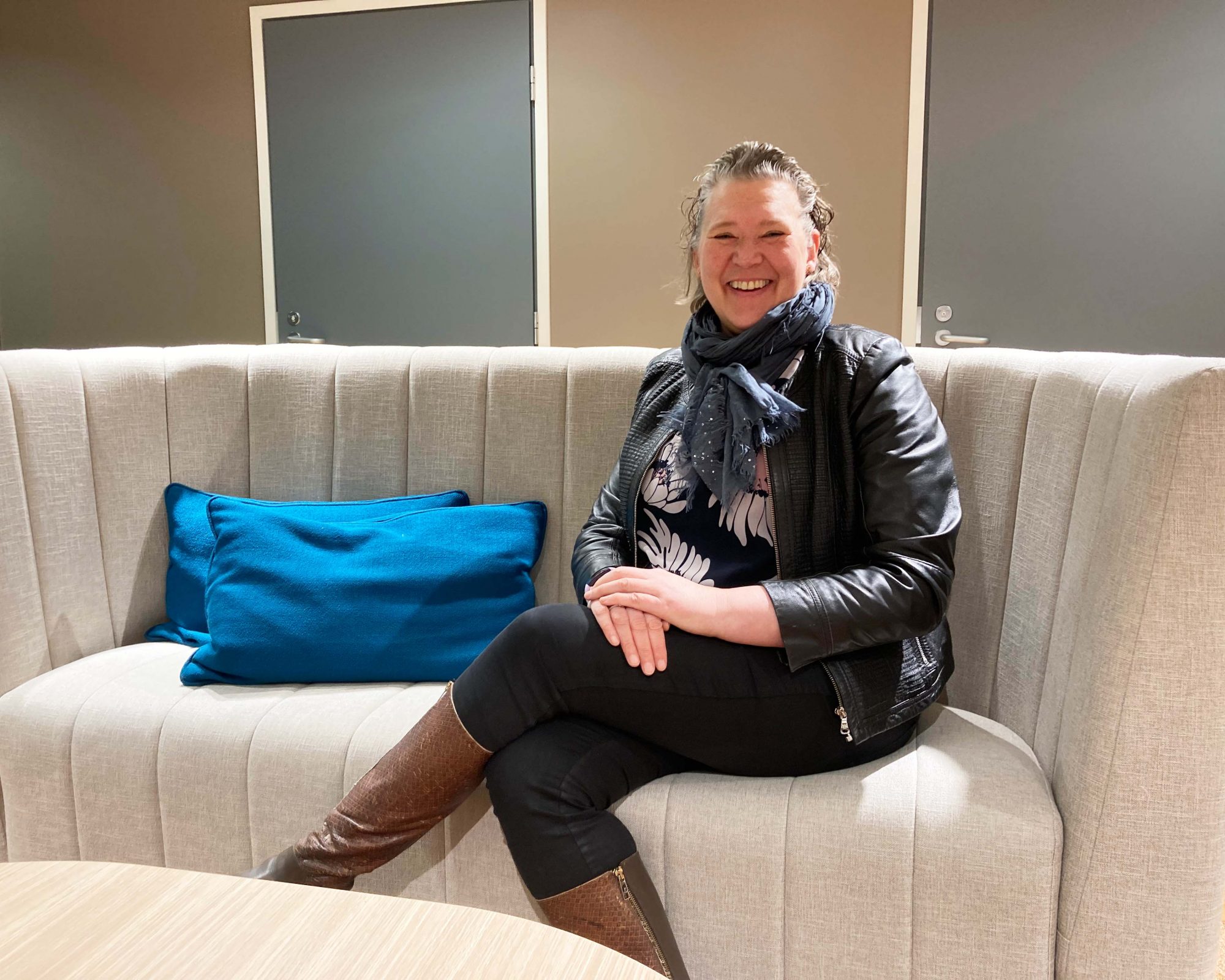Quick access to tests and treatment – at Docrates, each breast cancer patient has a customised treatment path
31.10.2023 Categories:
The principle of Docrates is that every breast cancer patient gets treatment and tests without delay. You can contact Docrates for tests and treatment, regardless of whether you discovered a worrying lump or a symptom on your own, whether something came up in a screening mammogram or whether you are already being treated in another health care unit.
Thorough examinations from the very beginning ensure the right treatment
When you contact Docrates, the receptionist will ask you questions and book an appointment with a doctor. The receptionist will also assess the need for additional examinations or tests.
The doctor’s appointment usually takes place within a couple of days after contacting Docrates. Imaging and tissue samples play an important role in the diagnostics of breast cancer and the planning of treatment. Most often, the patient also undergoes a breast MRI scan within a week as an additional examination. This provides additional information about the tumor and its size as well as the lymph nodes in the armpits. The scan can also help rule out other findings in the breasts. When we discover the subtype of the tumor, your treatment will begin. In addition to the oncologist, in other words a cancer specialist, you will also meet with the surgeon and your personal counselling nurse. It is possible to undergo breast cancer surgery within one week of contacting Docrates.
– Any additional findings in the MRI scan often require further testing, such as biopsies. Docrates always carries out the necessary tests without delay. We customise the treatment according to the bioprofile of the tumor, says Associate Professor Leila Vaalavirta, MD, Specialist in Medical Oncology and Radiotherapy at Docrates Cancer Center.
A breast cancer diagnosis is often a major shock to the patient, which is why the care team takes the patient’s need for information carefully into account. The patient is told about the different treatment options and the detailed steps of their treatment.
– The patient always sees the same attending physician, which means that the treatment relationship will not be interrupted at any point. We also have counselling nurses whom the patient is advised to contact whenever they have questions or concerns. It is important that the patient always has a contact person whom they can message or call, if necessary. In addition, patients have access to the digital communications channel Kaiku where they can talk about their symptoms and ask questions, says Vaalavirta.
There are different treatment options for early-stage breast cancer, and the treatment results are excellent. The majority of patients recover permanently. A quick and careful diagnosis right from the start helps find the right treatment and bring the best results. Using genetic information enables the use of the latest, targeted treatments.
Treatment by a multidisciplinary team
The multidisciplinary team planning the treatment of breast cancer includes a surgeon, an oncologist, a pathologist, a radiologist and a physicist who assists in the planning of radiotherapy. Treatments are planned according to the needs of each patient and the type of tumor, and there may be individual differences, for example, in relation to pharmacotherapy. At Docrates, new and latest medicines are quickly available. For some patients, pharmacotherapy can be started even before surgery.
– We always discuss the treatment decision with the patient. Since there is a lot of information to cover and the patient also has practical matters to attend to at the same time, we recommend bringing a family member with you to the appointment. It is important that the patient understands the factors that led to the treatment decision, says Vaalavirta.
At Docrates, the treatment solutions are flexible. As some of our patients travel a long way for their breast cancer treatment, they may want to have their radiotherapy or chemotherapy appointments in another health care unit closer to home. In addition to cancer treatment, patients can contact Docrates for support and treatment from a physiotherapist, a nutritionist, or a gynecologist, for example, or book a resources appointment.
– Many patients are ready to make changes in their lifestyle after cancer treatment. Studies show that smoking and significant weight gain, for example, slightly increase the risk of recurrence in breast cancers. Possible side effects of treatments, such as menopausal symptoms, are always treated individually, one symptom at a time, continues Vaalavirta.
Follow-up services are provided by listening to the patient’s needs
At Docrates, follow-up services after cancer treatment are agreed with the patient on a case-by-case basis. It is common to have follow-up appointments about once per year, but for some patients, more frequent follow-ups may be necessary at first.
– Follow-up services include an ultrasound, a mammogram and an MRI scan. In addition, follow-up services include a clinical examination of the patient at an appointment as well as possible additional testing, such as blood tests. The patient can also influence the frequency of their follow-up services, and the doctor who was involved in the patient’s treatment from the beginning is usually in charge of the follow-up services as well, says Vaalavirta.
Follow-up is a long-term service and aims to detect the possible recurrence of cancer as early as possible. It is important that the patients know whom to contact if new symptoms appear. In the public sector, the follow-up of breast cancer patients usually ends after five years. At that point, patients treated in other health care units can continue their follow-up services at Docrates.
– I have patients for whom I have provided follow-up services for ten years after their treatment ended. It is also rewarding for the doctor when a familiar patient books an appointment and is satisfied with the treatment and follow-up they have received. Patients also often praise our professional nurses and the calming, comfortable facilities of Docrates, says Vaalavirta, whose 20-year career includes specialist clinical work at a university central hospital and Docrates Cancer Center.












